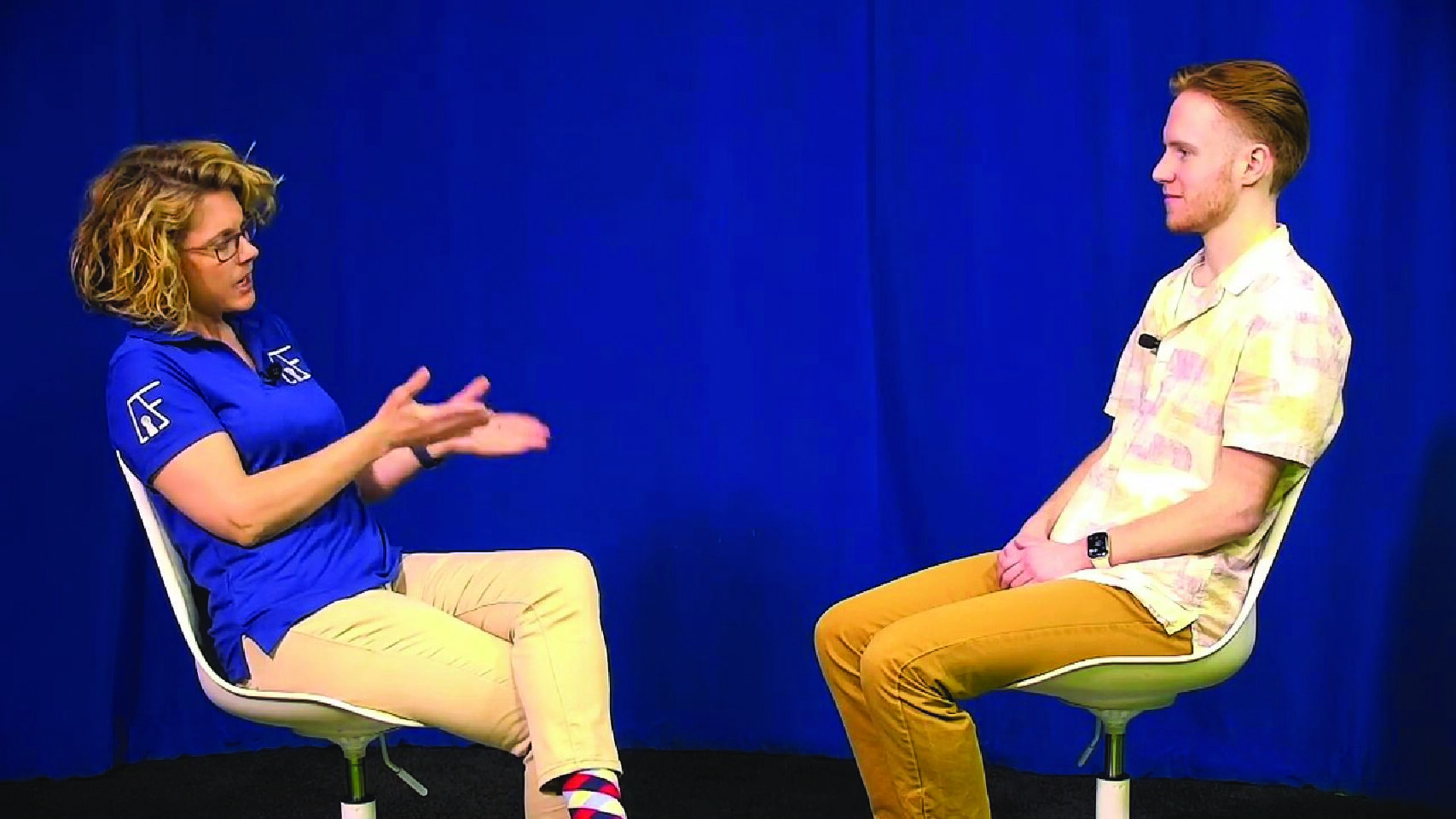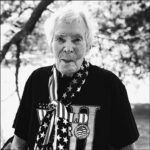Amid attacks on transgender care and rights across the country, Ashley Fuller interviewed Lou Scott, a transgender man, about his transition on her show “Meet Our Neighbors” on WayCAM TV. Scott is a social work student and local advocate for transgender rights.
Scott said he officially started his transition from female to male in 2022 when he was 19, although he felt like a male long before. “I have always been trans, and there were so many signs from when I was two, three, four, five — signs that now my parents both say, ‘Wow, I can’t believe I didn’t respond to that, and I can’t believe I missed that,’” he said.
When he begged his parents for a short haircut in third grade, he reached a turning point. He said he was initially overjoyed but then realized that this “subversion of gender expectations” led people to treat him differently. “My dad didn’t know what to do, “ Scott said. “It’s like, ‘My daughter — at the time — just got a haircut that she wanted, that she was begging for, and now she’s crying. Why?’ It was because I had already understood from a sociological perspective how this haircut would continue to impact me from then on in social settings.”
However, for the next two years, he dressed in basketball shorts and masculine clothing, feeling like a boy, but he didn’t yet have the words to articulate being transgender, because there was no widespread education about trans issues.
“It’s a lot harder to get through things when you don’t understand what the situation is and when you don’t have the resources,” Scott said. As a result of his gender dysphoria — and the fact that he was still treated like a girl — he had a hard time at school. He was required to use the girls’ bathrooms and locker rooms but avoided them at all costs. “At a certain point, I was quite literally peeing myself walking home from school because I just refused to go during the day,” he said. ‘I didn’t want to do it.”
Although his school eventually let him use the bathroom in the nurse’s office, he said that it still felt isolating. After a while, he didn’t want to go to school at all. To make life easier, Scott decided when he entered fifth grade that he should conform to female gender expectations. He grew out his hair and donned feminine clothes.
“I can remember doing so much research — ‘How can I grow my hair out the fastest possible way? How can I be a girl, essentially?’ And it sounds funny when I say that but it was true. From that point on, I was really studying to be a girl.” That strategy worked; living as a girl, he felt accepted. “I had felt so lonely and isolated for so long that something different seemed cool,” Scott said. “I was making a lot of friends, and people generally were just nicer to me, really.”
But after eight years, he realized how deeply he was struggling with gender dysphoria, depression and trauma from the abuse he had endured earlier. He thought transitioning would help solve some of those issues. “I realized this is not sustainable. I will be dead if I don’t do this,” he said.
As a first step in his transition, Scott cut his hair. When the long red hair fell from his head, he said he felt himself transform back into the child who had relished a short haircut without knowing what it meant.
“It was like I was transported back to fifth grade,” Scott said. “All the stuff that I had stopped healing from in fifth grade when I started growing my hair out — it was like I was transported back there. The transition changed the trajectory of my life. My healing process continued.”
Since his transition, the world around Scott has changed. Transgender issues are discussed more widely, but certain legal pathways to transition as well as gender-affirming healthcare are under attack. At a time when political chaos and arguments about the rights of transgender people are rampant, he encourages everyone to help trans people in their lives by advocating for them. He believes that education and openness are essential.
“Visibility is important to me in the fact that it educates people. When I reveal to people that I just met, people on the street, anywhere, it’s a moment of education that might not have occurred otherwise,” he said.
Scott said his experience with gender dysphoria made him feel disconnected from himself, which led to suicidal ideation. “I just did not care about myself at all because I wasn’t viewing myself as myself. It was like I was watching my life as a movie all the time. All the decisions I made were not for me. They were for somebody else,” he said.
“Not every trans person will attempt suicide, but enough have that it has become a societal issue,” Scott continued. “Now that access is being taken away to gender-affirming care and to support in general, we are seeing an increase in suicide rates, and particularly among trans youth.” He sees gender-affirming treatments like hormones, surgery and general health care as crucial inhibitors of suicide.
“Be the one to begin that conversation. Be the spreader of that information,” he said. “That is just such an incredibly beautiful thing not many people take the time to do.”
















